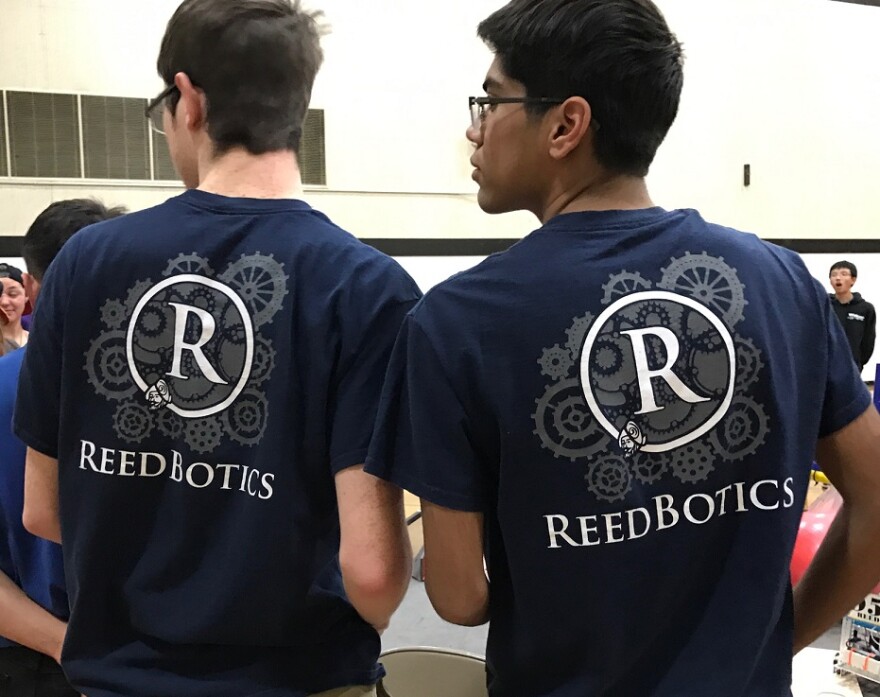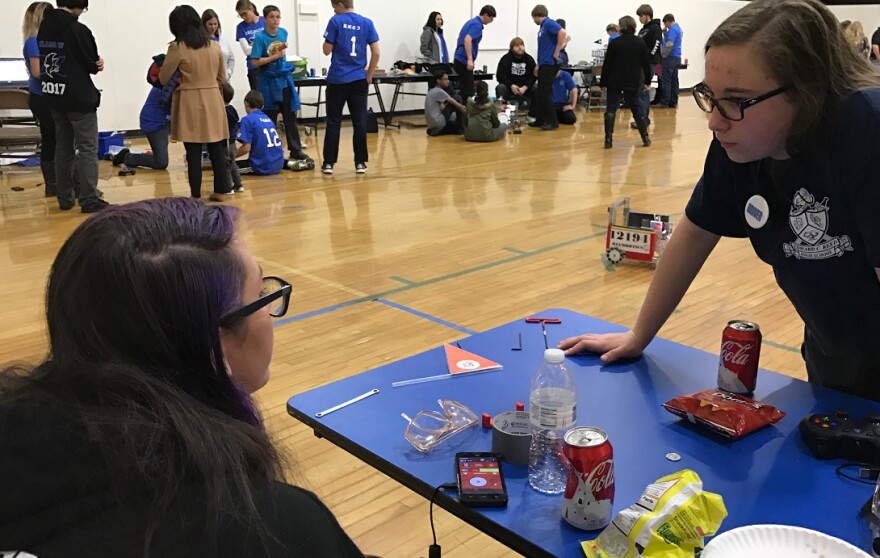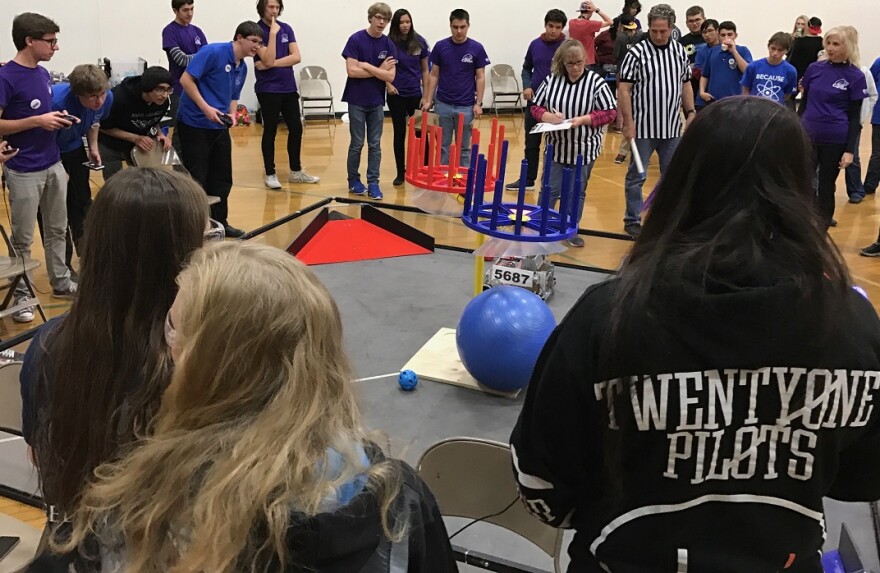The fields of science, technology, engineering and mathematics, or STEM, have historically been male-dominated. But an all girls’ robotics team at Reed High School is looking to buck that trend.
Reno Public Radio’s Noah Glick went to one of their recent competitions to learn more.
A group of high school students bring robots they’ve been working on for weeks to the arena.
It’s part of the FIRST Tech Challenge, a STEM-focused competition where students build, design and program robots that perform a litany of tasks for points, like activating switches known as beacons, or tossing wiffle balls called “particles.”

Leigh Metcalfe is a science teacher at Reed High School and coach for the school’s ReedBotics program, now in its third year. She says she’s steadily seeing more girls getting involved.
“We started with a team that was all boys. Last year, we gained our first girl, and then this year, we have both a boys’ and a girls’ team,” she says.
ReedBotics Girls is one of two all girls’ teams this season, along with the Sonic Screwdrivers from Carson City.
But even with some progress, Metcalfe says it hasn’t been easy.
“So it’s been a bit of a challenge to recruit girls, and it’s also really challenging to get mentors that are female to come in and work with our female teams, because the path of engineering is sort of small as far as women go,” Metcalfe says.
Dee Frewert is with FIRST Nevada, the non-profit organization behind this event and other robotics competitions.
“If we could encourage the girls to go in and seek more challenging opportunities and compete head-to-head with traditionally all-boys teams, I think it gives them a leg up,” she says.

Frewert adds that girls in the program are learning more than engineering.
“Girls can participate in a lot of the STEM activities, and actually lead it,” she says. “So we’re looking for young leaders, we’re encouraging them to seek engineering roles and we’re giving them some professional guidance to move their careers forward.”
According to the National Science Foundation, male and female K-12 students generally perform equally well in mathematics and science, and are enrolling in advanced science courses at similar rates.
Last year, women outnumbered men in the college of science at the University of Nevada, Reno. And over the past four years, the college has seen a 32 percent increase in the number of female students, versus seven percent for males.
Gina Tempel is associate dean.
“Women are successful. If we look at the retention rate of students from first- to second-year, women are retained at a very high rate, even higher than men, slightly higher,” she says.
Last year, women in the college of science had a retention rate of 83 percent, more than two points higher than the university average.
Tempel says women provide a diversity of thought to the field, but getting them there can be a challenge.
“If students are interested in pursuing STEM, mostly it’s because they have had someone, a family member or someone that they knew, that was in that career track,” she says. “If we can find a way to provide more role models to female students out in the school districts, I think it’s important to bring students into STEM careers.”
In UNR’s college of engineering, the gaps are even bigger. Last year, less than one in five engineering students were female.
Samuel Gbafa, a recent UNR graduate of that program, has worked with both ReedBotics boys and girls teams. He says there’s a noticeable difference in how they approach problems.
“As the girls’ team, it was more cooperative, it wasn’t top-down, it was more everyone doing their part and discussing what they were going to do, versus more of a dictation from the guys,” he says.

After scouting out the competition, Michaela Carr of ReedBotics Girls tests out a new program on her robot. She first inputs code that gets uploaded to a smartphone, which is also used as a controller.
She says it’s important to have girls represented at these competitions.
“Girls just think that they can’t do it because it is seen as a guy-type thing,” she says. “And it’s important for me to be able to be an example and say that girls can do it, and we are pretty good at it.”
After four meets, ReedBotics Girls is ranked second out of ten teams in northern Nevada.
The FIRST Tech Challenge league finals take place Wednesday night from 4-8 p.m. at Reed High School in Sparks.
Watch the ReedBotics Girls team's robot activate beacons during the first meet of the FIRST Tech Challenge.





